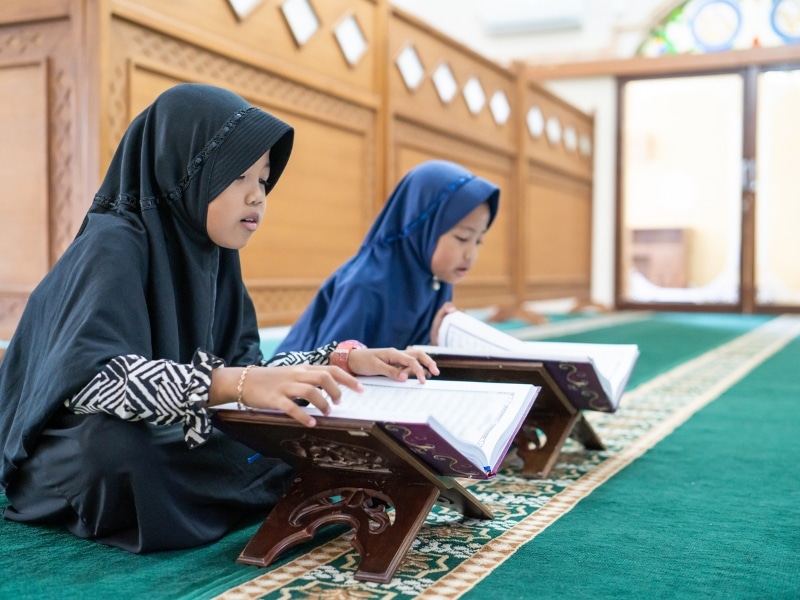How Do Quran Classes Help With Character Development?

Character development is a vital part of a child’s upbringing, shaping how they interact with the world and make moral decisions. While values can be learned at home, structured education plays a crucial role in reinforcing ethical principles. Quran classes offer more than just religious instruction—they serve as a moral framework, teaching virtues such as honesty, kindness, patience, and responsibility. Through guided learning, children internalise these values, helping them develop into ethical and compassionate individuals. This article explores the impact of Quran education on character development, supported by insights from educational psychology and Islamic teachings.
What role does the Quran play in character development?
The Quran provides a moral and ethical guide that influences human behaviour. It emphasises the importance of personal integrity, respect for others, and a sense of responsibility.
According to Islamic scholars, the Quran’s teachings serve as a “blueprint for ethical living,” shaping a child’s moral compass from an early age. Many educators and psychologists agree that structured moral education significantly impacts a child’s ability to develop strong ethical reasoning.
Core character traits emphasised in the Quran:
- Honesty – “And do not mix the truth with falsehood or conceal the truth while you know [it].” (Quran 2:42)
- Patience – “Indeed, Allah is with those who are patient.” (Quran 8:46)
- Compassion – “And be good to parents and relatives, orphans, and the needy.” (Quran 2:83)
- Humility – “And do not walk upon the earth exultantly. Indeed, you will never tear the earth [apart], and you will never reach the mountains in height.” (Quran 17:37)
By learning these principles in Quran classes, children internalise ethical behaviour and apply it to everyday situations.
Why do Quran classes help children develop good behaviour?
Quran classes provide structured moral guidance, reinforcing positive behaviour through habit formation and repetition. According to child development research, children learn best through consistent reinforcement and real-life applications of moral teachings.
Key benefits of Quran classes for behavioural development:
Moreover, studies on moral education in Islam suggest that early exposure to ethical teachings reinforces prosocial behaviour, reducing tendencies toward aggression or dishonesty.
When do children start showing signs of character development?
Character development is a gradual process that begins in early childhood. From infancy, children observe and mimic behaviours, learning fundamental social and moral cues. As they grow, their sense of empathy, fairness, and responsibility starts to take shape. Additionally, Quran classes support this natural development by providing structured moral guidance through storytelling, discussions, and real-life applications.
To better understand how children develop moral reasoning over time, learn more about the psychological stages of child development. Recognising these stages allows parents and educators to provide the right support at each phase.
Can Quran classes help children become more confident?
Yes, Quran classes build confidence by providing children with a sense of achievement through memorisation, recitation, and understanding of Quranic teachings.
How Quran classes boost confidence:
- Public Recitation: Helps children overcome shyness and develop public speaking skills.
- Positive Reinforcement: Encourages self-belief through encouragement from teachers and peers.
- Understanding Ethics: Gives children clarity in decision-making, reducing self-doubt.
- Problem-Solving Skills: Enables children to handle social challenges with confidence.

Psychologists suggest that children with strong moral reasoning are more likely to feel confident in their decisions and less susceptible to peer pressure.
Who plays the biggest role in a child’s character development?
Character development is a collaborative effort involving parents, teachers, and society. Quran classes act as a reinforcement tool, complementing moral lessons taught at home. To truly support your child’s growth, it’s essential to understand the broader impact of early education. Research why early childhood education is important for your child to see how it shapes their moral and cognitive development. A strong foundation in these formative years helps children internalise values and build positive character traits.
Influence on character development:
How do Quran classes encourage kindness and generosity?
The Quran repeatedly emphasises kindness and generosity, making them core values of character development. Quran classes use interactive methods to instil these qualities in children, helping them understand the impact of their actions on others. If you’re looking to nurture these values in your child, find local Quran classes for kids that focus on teaching kindness and compassion in a supportive environment.
Ways Quran classes promote kindness & generosity:
- Storytelling: Sharing real-life examples from the Prophet Muhammad’s (PBUH) life.
- Practical Activities: Encouraging children to perform small acts of kindness daily.
- Community Projects: Involving children in charity work, like collecting food for those in need.
- Daily Reflection: Engaging in discussions about ethical dilemmas and the importance of generosity.
Research shows that children who engage in charitable activities at an early age are more likely to be compassionate adults.
Which teaching methods make character development more effective?
The effectiveness of Quran education depends on the teaching approach. Studies suggest that interactive learning is more effective than passive memorisation alone.
Effective Teaching Methods in Quran Classes:
- Play-Based Learning: Uses games and role-playing to teach moral lessons.
- Visual Aids: Incorporates pictures, videos, and storytelling for better understanding.
- Practical Application: Encourages children to apply lessons in real-life situations.
- Discussion & Reflection: Helps children express their thoughts and learn from others.

Are extracurricular activities important for character development?
Extracurricular activities play a crucial role in shaping a child’s character by fostering discipline, teamwork, and emotional intelligence. While Quran classes provide a strong moral foundation, hands-on activities help children apply these values in real-life situations. For holistic development, consider Quranic education and explore strategies to help a toddler regulate emotions. Children engaging in structured activities develop patience, empathy, and resilience—essential traits for positive character growth.
Benefits of extracurricular activities:
Children learn better when values are reinforced through diverse experiences rather than solely through classroom instruction.
Conclusion
To sum up, Quran classes provide a strong ethical foundation, helping children develop values like honesty, kindness, patience, and generosity. By integrating effective teaching methods, real-life applications, and extracurricular activities, Quran classes ensure holistic character development. To nurture morally upright and confident children, parents, teachers, and communities must work together to reinforce these everyday lessons. For those curious about the specifics of ethical education programs, you can always reach out to Innocent Minds.
